Do you have Section 75 chargeback rights as a supplementary credit card holder?
Links on Head for Points may support the site by paying a commission. See here for all partner links.
If you read the Head for Points comments section, you will know that ‘Section 75’ coverage often comes up when discussing payment aggregators such as Curve.
‘Section 75’ is the UK law which makes a credit card company jointly liable with the retailer for anything you buy, as long as you spend over £100 and under £30,000. (You can charge as little as £1 to a credit card to get the coverage, but the total purchase must be over £100.) You can claim up to six years after the original purchase.
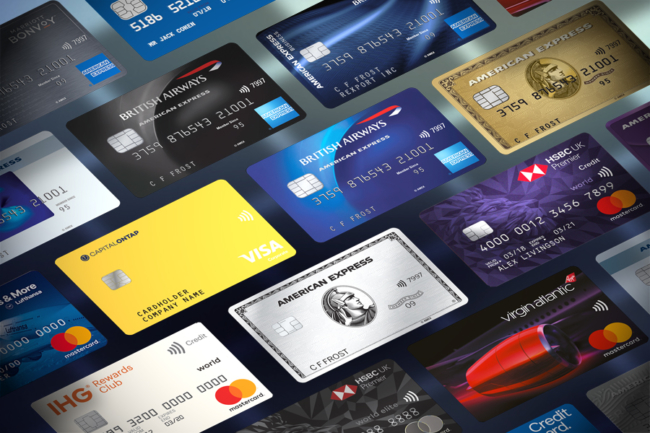
If the retailer goes bust or the product is faulty and the retailer shuns your refund request, you can go to your credit card company and ask for a refund. It is one of the most consumer friendly pieces of legislation around. I’m never sure if the credit card companies are pleased it exists, but it is a great advertisement for using a credit card instead of cash or a debit card for major purchases.
Of course, you can easily not be covered by this rule, but it doesn’t matter much:
- American Express charge cards are not covered – neither would the Lufthansa Miles & More Diners Club / pre-paid Mastercard cards – because they are not credit cards. Both run their own voluntary schemes, however, which give equivalent cover. Technically these voluntarily schemes are not as good, because they do not have the law behind them, but in reality you will be fine.
- Any purchases you make via Curve Card, PayPal or similar products are not covered. This is because the contract chain goes ‘you / Curve or PayPal / underlying credit card / retailer’ so there is no direct contract for that particular purchase between you and the credit card company. Again, Curve and PayPal have their own voluntarily schemes so you shouldn’t lose out.
But if you pay directly with a credit card you’re fine …. aren’t you?
We looked at this topic a couple of years ago when the Financial Times raised it (article is here behind a paywall). There is an interesting catch to the Section 75 rules.
Purchases made on supplementary credit cards are usually not covered by Section 75
If your partner has a supplementary credit card on your account, and they make a purchase with it for themselves, you do NOT automatically get refunded if the retailer goes out of business. This is because the credit card contract is only with the main cardholder.
Here is a case study
Since I last looked at this, I came across a case study on this topic. It is in the newletter of the Financial Ombudsman Service (PDF), which is about as definitive as you can get. Here it is:
Mrs L negotiated with a land-holding company to buy a plot of land. She said she agreed to buy the land on the basis of a spoken assurance from the company that she would be able to obtain planning permission for the plot.
After completing the purchase, Mrs L discovered from the local authority that she was unlikely ever to get planning permission to develop the land. As she had used a credit card to pay the deposit, Mrs L considered that the credit card provider was liable to her under Section 75 for the cost of what she now considered to be ‘worthless’ land. However, the card provider disagreed, so Mrs L brought the case to us.
Complaint rejected:
Mrs L had bought the land in her sole name, intending to develop it as her own project. But she had paid the deposit by using a credit card account in her husband’s sole name. Even though her husband had allowed her to have an additional card (carrying her own name) on the account – the account itself was in Mr L’s name and it was Mr L – not his wife – who had had been provided with credit.
Because of that, the linked ‘chain’ of lender, borrower and supplier required for Section 75 to operate was not present, so we could not uphold Mrs L’s claim against the credit card provider.
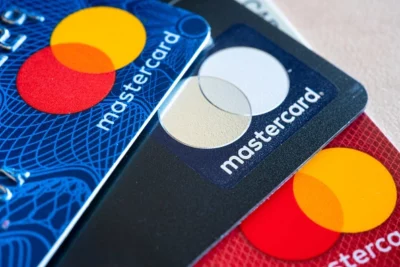
Purchases made for a third party by the main cardholder are not covered under Section 75
Here is another quirk to be aware of, although most of the time this wouldn’t matter. If you buy a sofa for your Mum on your main card and it is never delivered to her due to bankruptcy, the credit card company is unlikely to find out that it wasn’t for you.
However, if you book a flight or hotel for someone else then the paperwork will clearly show that you are not the traveller and coverage could be refused.
I know that many HfP readers offer to put purchases for friends and family through their cards. This could be to help them hit spending targets for a bonus or to benefit from, say, double points on airline purchases on Amex Gold. This may not always be sensible.
Using the same logic, you CAN be covered for some supplementary card transactions
The logic over who ‘the purchaser’ actually is means that some supplementary card transactions ARE covered under Section 75 as long as the main cardholder benefits from them in some way.
If your partner used a supplementary card to book a holiday for both of you then you ARE covered, because the main cardholder is a beneficiary. Similarly, if your partner bought a present for someone which was to be a gift from both of you, it should be covered.
This is what Which? has to say on the matter:
Additional cardholders
If somebody else such as your partner has a credit card and has added you as an additional cardholder, it’s usually best to get the main cardholder to make any big purchases, rather than using the extra card yourself.
This doesn’t mean that purchases made by a secondary card holder will never be covered, but it’s best for the primary card holder to make larger purchases if you want to be sure of protection under Section 75.
If, however, the purchase is made with the primary card holder’s authority and if they expressly request the purchase and will benefit from it – a family holiday, for instance – they will still be covered under Section 75.
For clarity …. I wouldn’t get too paranoid about this. Realistically, however you pay, you are likely to be reimbursed under a voluntarily scheme even if Section 75 fails.
However, some people who won’t use Curve or PayPal because they want 100% legal certainty of being paid back. If you are one of those people, you should also ensure that you aren’t charging big purchases to a supplementary card unless the main cardholder is a ‘beneficiary’ of the purchase.
PS. If you are not a regular Head for Points visitor, why not sign up for our FREE weekly or daily newsletters? They are full of the latest Avios, airline, hotel and credit card points news and will help you travel better. To join our 70,000 free subscribers, click the button below or visit this page of the site to find out more. Thank you.
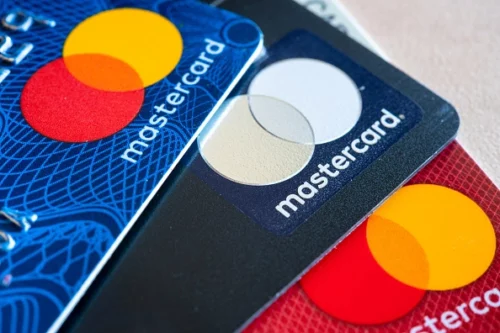
Want to earn more points from credit cards? – July 2025 update
If you are looking to apply for a new credit card, here are our top recommendations based on the current sign-up bonuses.
In 2022, Barclaycard launched two exciting new Barclaycard Avios Mastercard cards with a bonus of up to 25,000 Avios. You can apply here.
You qualify for the bonus on these cards even if you have a British Airways American Express card:

Barclaycard Avios Plus Mastercard
Get 25,000 Avios for signing up and an upgrade voucher at £10,000 Read our full review

Barclaycard Avios Mastercard
Get 5,000 Avios for signing up and an upgrade voucher at £20,000 Read our full review
You can see our full directory of all UK cards which earn airline or hotel points here. Here are the best of the other deals currently available.
SPECIAL OFFER: Until 15th July 2025, the sign-up bonus on the Marriott Bonvoy American Express Card is TRIPLED to 60,000 Marriott Bonvoy points. This would convert into 25,000 Avios or into 40 other airline schemes. It would also get you at least £300 of Marriott hotel stays based on our 0.5p per point low-end valuation. Other T&C apply and remain unchanged. Click here for our full card review and click here to apply.
SPECIAL OFFER: Until 14th August 2025, the sign-up bonus on the Hilton Honors Plus debit card is TRIPLED to 30,000 Hilton Honors points. You will also receive Gold Elite status in Hilton Honors for as long as you hold the card. Click here for our full card review and click here to apply.

American Express Preferred Rewards Gold Credit Card
Your best beginner’s card – 20,000 points, FREE for a year & four airport lounge passes Read our full review

British Airways American Express Premium Plus Card
30,000 Avios and the famous annual Companion Voucher voucher Read our full review

The Platinum Card from American Express
50,000 bonus points and great travel benefits – for a large fee Read our full review
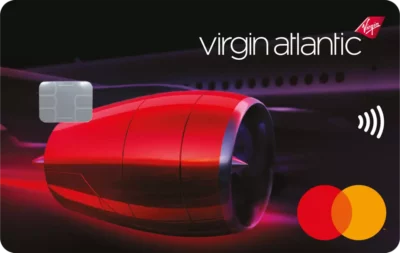
Virgin Atlantic Reward+ Mastercard
18,000 bonus points and 1.5 points for every £1 you spend Read our full review
Earning miles and points from small business cards
If you are a sole trader or run a small company, you may also want to check out these offers:

The American Express Business Platinum Card
50,000 points when you sign-up and an annual £200 Amex Travel credit Read our full review

The American Express Business Gold Card
20,000 points sign-up bonus and FREE for a year Read our full review
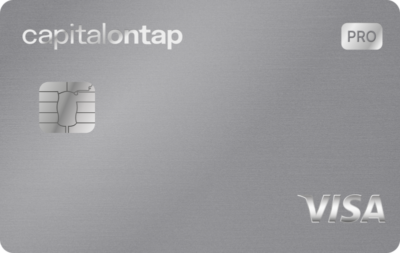
Capital on Tap Pro Visa
10,500 points (=10,500 Avios) plus good benefits Read our full review

Capital on Tap Visa
NO annual fee, NO FX fees and points worth 0.8 Avios per £1 Read our full review
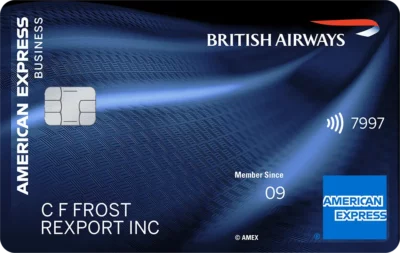
British Airways American Express Accelerating Business Card
30,000 Avios sign-up bonus – plus annual bonuses of up to 30,000 Avios Read our full review









Comments (44)